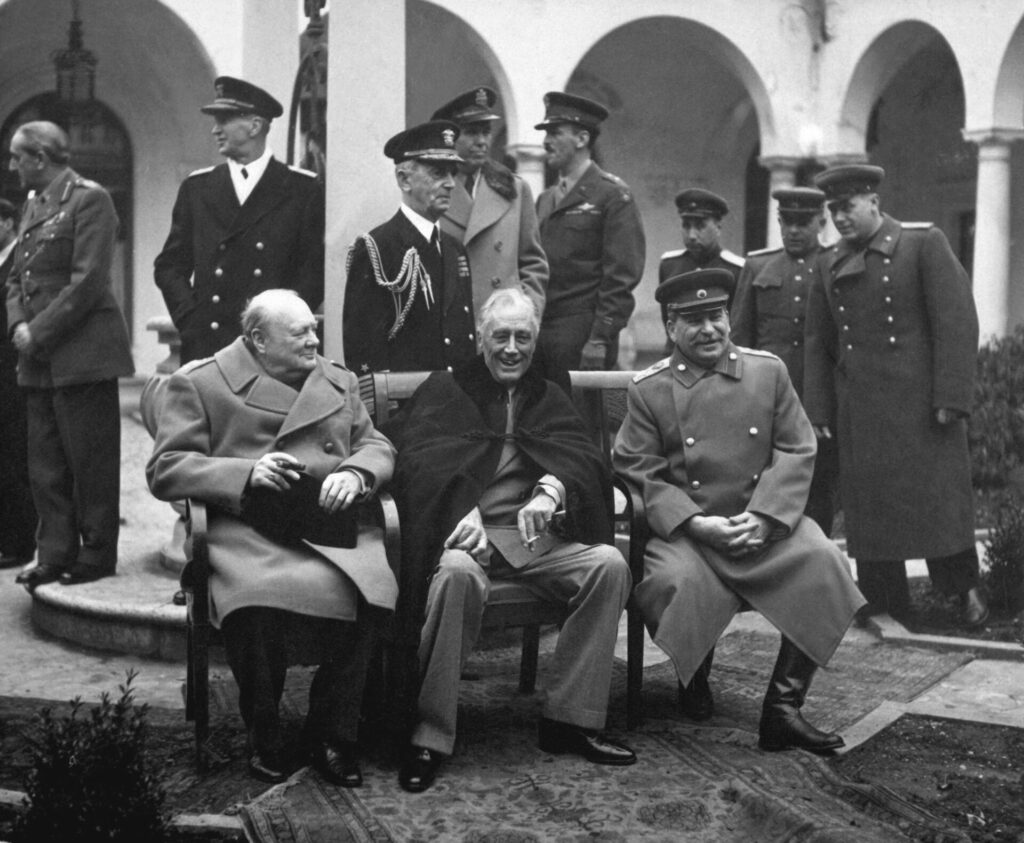The inability of the UN Security Council to take action has renewed discussions about the real value of the institution. With maintaining peace its ultimate goal, the Security Council is paralysed by its permanent seat policy, which Russia continues to take advantage of.
"The United Nations Security Council has proven once again to be useless," wrote historian Francis Fukuyama, in the American Purpose magazine in February.
The Council's history
The Security Council is dominated by its five permanent members: the US, Russia, the UK, France and China, which all have nuclear weapons. Since its creation in 1945, new countries have entered the club of nuclear powers, including Pakistan, India, Israel and North Korea.
The founders of the Security Council chose to limit the permanent seats at the Council Security whose job is to decide when a UN peace operation should be deployed. More broadly, the goal was to create an international security structure that could avoid conflict or quickly resolve it.
It was intended to reflect the new world order that emerged from the Second World War, spearheaded by then US President Franklin D. Roosevelt, USSR leader Joseph Stalin and the United Kingdom under Winston Churchill. China was added to the Security Council due to pressure from Roosevelt as China had fought with America against Japan. France, another old colonial power, was also included.
"Wise men"
These countries were considered "wise men" due to the ordeals they had been through in the Second World War. It was thought that they could be the guarantors of a peaceful world because they would no longer commit the same mistakes.
At the same time, the founders were aware that the decolonisation efforts of many countries at the time would produce young nations presumed to be fiery and feisty and therefore could not be put at the same level, La Libre reported on Tuesday.
It is a structure that looks strange today considering how India, a nuclear power with a booming economy, has a population of 1,369,454,000 billion, while America has 329.5 million.
The founders agreed on a permanent seat of the Security Council, which decides on issues related to war, as well as the right to veto.
UNGA
Meanwhile, the United Nations General Assembly, sometimes abbreviated to UNGA, brings together all members of the UN and it is the organisation's policy-making and decision-making body. Yet when it adopts resolutions, they are not binding like those of the Council.
In March, UNGA demanded that Russia stop its invasion of Ukraine, voting 141 to 5 with 35 abstentions. Yet the Security Council failed to take action because of the Russian veto and China's abstention.
Security Council members use their right to veto to serve their own interests. But despite the inability to take action in Ukraine, the institution seems impossible to reform.
No reform
With emerging countries, such as India and Brazil, and established economies such as Japan, the organisation doesn't reflect the world as it looks today.
Reforming the Security Council has been an ongoing debate at the UN and international affairs circles well before Russia's invasion of Ukraine.
However, the reality remains that its founders did not cater for when one of the permanent members becomes the aggressor, as we saw during the Iraq war two decades ago, and as we see today with Russia's invasion of Ukraine.
While plans exist to include emerging and democratic powers such as South Africa into the Council, with or without the power to veto, its old members don't want to give up the current structure and lose their privileges.
The UN's failure to act has been summed up by UN Secretary General pleading with Russia to stop its senseless war in March, but not being able to do much else, given the UN is a forum, and its decision-makers are the Member States.

